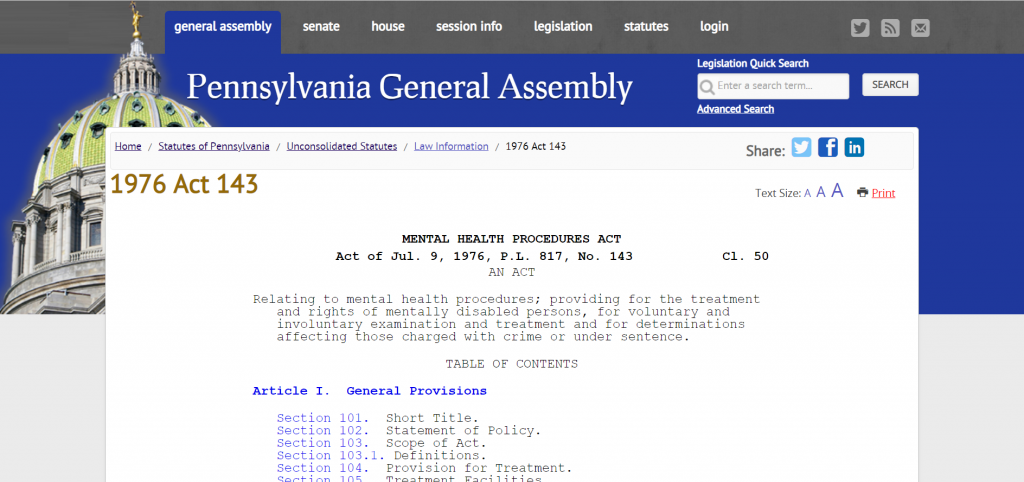BY J. CHADWICK SCHNEE, ESQ., THE LAW OFFICE OF TUCKER HULL
It’s Mental Health Awareness Month, and, in Pennsylvania, it’s always important to know a bit about the involuntary commitment process under the Mental Health Procedures Act, 50 P.S. § 7101 et seq. (“MHPA”). It’s very important to note that, because an emergency involuntarily commitment can temporarily or even permanently deprive a person of important rights, courts interpret the MHPA narrowly so that every single requirement of the MHPA must be followed in order for an emergency involuntary commitment to stand.
Article III of the MHPA allows an individual to seek an involuntary emergency examination and treatment for a person that is “severely mentally disabled and in need of immediate treatment.” 50 P.S. § 7301(a). Generally, in the event that a person believes that an individual “poses a clear and present danger of harm to others or to himself,” a person can complete an application (under penalty of perjury) setting forth “reasonable grounds” as to why a person is in need of immediate treatment. 50 P.S. § 7302.
With an application, a county administrator may issue a warrant requiring the individual to be evaluated by a physician to determine whether that individual is in need of up to 120 hours of emergency involuntary treatment. 50 P.S. § 7302.
(It is also possible for an emergency examination to be conducted without a warrant, but it the statute requires a person to make a written statement (again, under penalty of perjury) once person involuntarily committed arrives at a facility for treatment.)

While the statute provides that a person taken to a facility for emergency treatment must be examined by a physician within two hours, there are some judicial decisions suggesting that a person can be examined within two hours of when they are medically stabilized. (For example, if a person is under the influence of narcotics or alcohol, a physician may not be able to assess whether the person is severely mentally disabled at the time.)
If a physician determines that a person is severely mentally disabled and in need of immediate treatment, the person can be involuntarily committed for up to 120 hours. 50 P.S. § 7302(d). If additional treatment is required, a person can be subject to an extended involuntary treatment under Sections 303 and 304 of the MHPA.
An emergency involuntary mental health commitment, however, can be expunged, and the attorneys of the Law Office of Tucker Hull have experience in expungement proceedings under the Mental Health Procedures Act. In fact, there may be good reasons to have a commitment expunged, especially because a mental health commitment deprives a person of the opportunity to possess firearms, even if a person has fully recovered (more on that in a future post).
If you or a loved one has been involuntarily committed, reach out to the attorneys at the Law Office of Tucker Hull to discuss whether the involuntarily mental health commitment can be expunged.
J. Chadwick Schnee, Esq. can reached at chadwick@tucker-hull-law.com or 717-685-7947.


